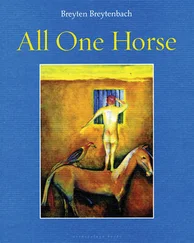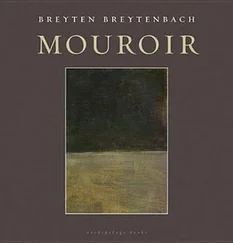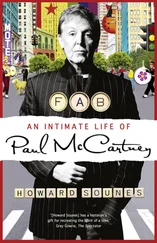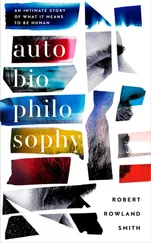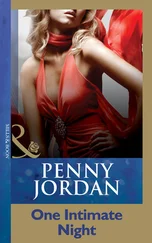Authenticity should not be confused with ‘authority,’ Picaro finally concludes. Authenticity (the integrity of the voice, not its coherence or its homogeneity) goes beyond reliance on “verifiable facts or information.” Ms Reader, he hopes, will sense whether he can be trusted or not as ‘search party’ into the thickets of existence. She may well be enticed out of the bush. Will she snort and hoot? Authority, on the other dirty hand, is a construct shaped by perceptions about reality (the way the media do about war); it draws its sustenance from collective prejudices and preferences — patriotism, nationalism, religion, racism. .
For a poet, there is terror in the dust.
Wen Fu
OF PENISES AND PENINSULAS
the cento as dirge
Nonetheless,
it was too late.
By that time,
we had all been royally fucked.
(Clary Stopes)
I spent all night dreaming about god
as though some blank bird called
(There were) scuff marks where I
have been running from the shadows
the barbed wire
the bloody bodies the naked women
crawling in the hope of
staying alive
Alone at dawn, alone watching
the rotting face of the grinning thing
The open window means little
to the disheartened dreamer –
the world is empty as a song
and we lose the place where we belong
Alone at dawn, alone watching
the shadow dunes washing their black
back into a green sea of grass
the vertebrae of gulls aglow
and now as how blood
clots to black its platelets
of newspaper ink
splashing the banks of the river
so some other ass could drink it all up
Alone at dawn alone watching
the rotting face of the grinning thing
the hint of lips
held flush with papier-mâché and masking tape
walking on top of words so soft
(the memory of these passing breasts)
who fiercely guard the empty spaces between us
A gray horse looks into empty windows
The world is empty as a song –
the open window means little
to the disheartened dreamer
but we lose the place where we belong
Time is slow and moves at
a slackening rate as the fog floods
your valley with a frail sea
Don’t be afraid to open your eyes
though the rolling-calf
draws its chain in the wet grass
Why should our bodies
not steal from dreams?
I’ll deliver all the lands for the chosen in a single night
and what will I do with shoes, clothes, underwear?
Those kinds of things fell to men
who had the barbed wire
the bloody bodies, the naked women
clawing in the hope of
staying alive,
girls who were fourteen but looked legal enough
to the Dakotas’ drinking eyes
If death were a field of sugarcane
I am the mongoose’s tail burning a trail
through its snake ridden heart her
tan crust of skin roasting
in our smoke turning black
The open window means little
but we lost the place where we belong
to the disheartened dreamer
and the world is empty as a song –
you feel this most in our eye, the love
the torturous going their own way, sparks
in dying embers:
they all left
except the wineskin whore
People pull out their dead graves singing
these bedazzled beings dressed like foreigners
and in the street
a piano and the winter evening smells
of wine and roasted garlic
carbolic skin
and that silent slow smoke
from a cold coal stove
Not our abused gods but old wifeless
men in a procession that
precedes us immemorially with their dying
walking on tops of words so soft thought
that everything is burning everything
I spend all night dreaming about god
as though some blank bird calls:
Painted sparrows carry
my body to Elysium one
glittering bit at a time:
how slowly I say goodbye
How slowly I say goodbye
Don’t go without ringing
The boy’s ossified heart
And dance even when
You the only music
Putting on the cold shoes
Of a man leaving with certainty
Listen late, and you might hear the bark:
some things aren’t needed
some things aren’t said
and guide us to a calm in spite of ourselves
I can’t listen anymore
I’d like to die
in my poem a little while –
show me where
and go away
or face the rot of the grinning thing
looking into empty windows
That’s what you meant. Right, Bro?
New York, Sept. — Dec. 2006
With thanks. And dedicated to: Scott Bear Don’t Walk, Mercer Bufter, Brian Chung, Ishion Hutchinson, Brian Kalkbrenner, Dante Micheaux, James Miller, Mrigaa Sethi, Adam Wiedewitsch, Ron Villanueva, Ronnie Yates, and John Murillo.
One plunders the notebook again and again. I don’t know whether I’ve written this before.
I find: “The past is the ink with which we write the present — and in the process and the flow of writing words, concepts and ideas, the images, the flights become. . just ink . Whereas, what we’d probably like to write would be an open hand wherein time, which is the future of the present movement of surfacing, could find its fit and its fist.” (One also remembers that there is lamp-black in ink.)
A little further I find: “You must polish the word — not to have it shiny or smooth, but to make it as clear as the mirror or the pebble in which you can read your face, and may see that your face is death.” And then: “The recognition and the acceptance of the Other’s humanity (or humanness) is a maiming of self. You have to wound the self, cut it in strips, in order to know that you are as similar and of the same substance of shadows.”
These reflections surface during the visit to Weimar where I’m to be a member of the jury tasked with deciding which philosophical essay best answers the question of how to free the future from the past and the past from the future.
It is a curious town, the small provincial capital of Thüringen, egg-yellow facades are washed to keep up a sun-splashed face of classicism and quaint comfort and the late bourgeois charms of GDR democracy — but in the back streets houses are rotting from neglect and decay. The place is flooded with Goethe; he is on every menu — the dogs don’t piss against trees and lampposts, they bark snippets of the great man’s wisdom. And to a lesser extent there’s Schiller and Herder and Liszt who played his piano in a big room with an ornate ceiling and Nietzsche who stroked his madness in his mother’s house as if it were a moustache. . Their spirits flutter above the rooftops and the steeples the way banners are the remembrance of republics and of battles.
It is dark when we visit the replica of Goethe’s Gartenhaus. A blonde lady architect guides us through the low-beamed rooms of the exact copy of the small house where the master used to work. Look, she says and points, we photographed the floor-tiles of the original dwelling so that we could faithfully reproduce the spots and the scratches; and look, this is the identical copy of his writing desk where we made precisely the same ink-stains blot by blot. When she turns her back to escort us to the next room, Andrej Bitow, the Russian author, slips a kopeck into one of the desk’s drawers, “to fuck up the symmetry and destroy the German soul.”
But why this? Because we wanted to see if it could be done, the girl guide says. It cost nearly 2 million Deutschmarks to assemble. Now you see it, now you don’t. The original nearby in the dark garden of the night is for pious ogling only — the clone here you can run your hands over. But is that not the definition of totalitarianism, ‘the repetition of the same’? And now, what about aging? Will they touch up the copy to show, in time, the same wear and tear as the original? Or will the original be brought in line with its monstrous shadow?
Читать дальше

